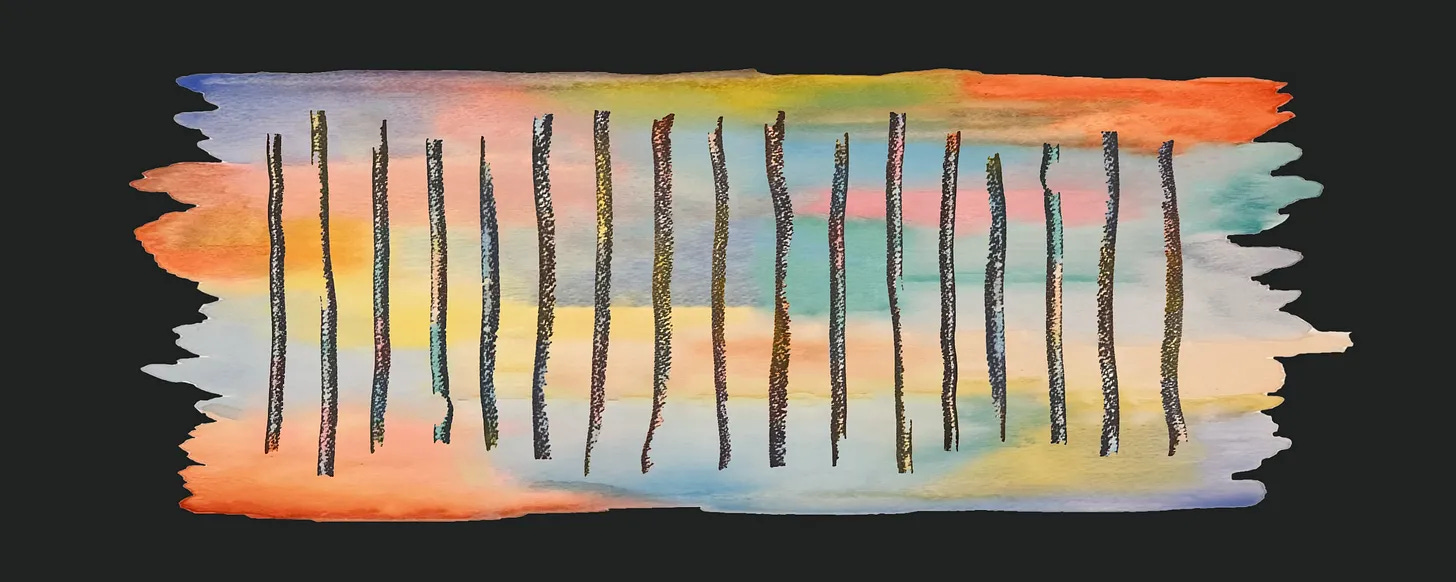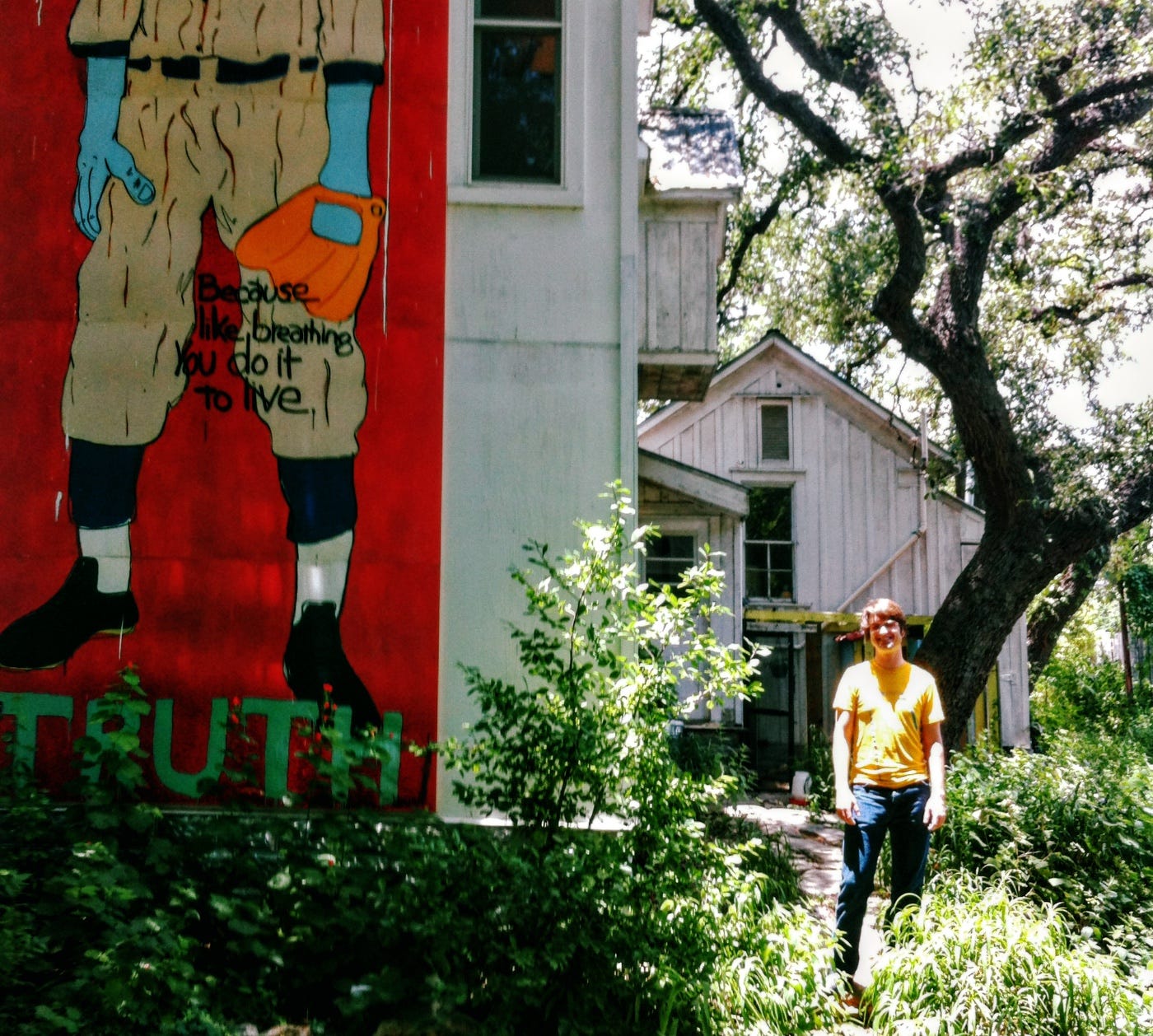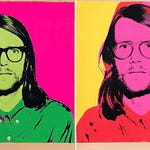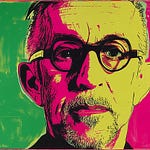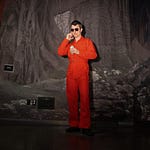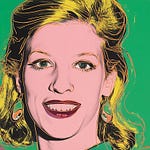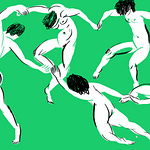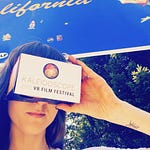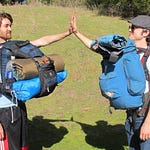OBSESSED is a living memoir of my 17-year quest to build Artizen — from idea to escape velocity and beyond. New episodes every week.
Read Previous → Episode 3: Hurricane Party
The big nothing
After SXSW, we have a flurry of investor meetings, a handful of promises, and a feeling we were right on the edge of something huge. But then… nothing. Dead silence. No follow-ups, no checks. And, without the promise of free booze, our app flatlines. We’d been paying people to party. The minute the party stopped, so did our growth.
I was running on fumes and out of ideas. But my co-founder, Eric? He still had his head in the game. He’d found religion with the Lean Startup methodology—listening to users, testing hypotheses, pivoting based on what you learn. Like an anthropologist discovering a new tribe called “customers.”
While I wallowed, Eric interviewed users. That summer, everyone was obsessed with Foursquare, checking in to bars and restaurants for sport. But there was a flaw—seeing where your friends were now didn’t help you meet up. By the time you spotted a check-in, they were already out the door.
So, we have an idea: Foursquare for the future. Instead of announcing where you are, you forecast where you’re going to be. We build an app where friends post their plans for the next 24 hours—a crystal ball for your social life.
We’d call it Forecast.
The team throws together a prototype, and we start Forecasting with friends. Then, one day, we get our first real spike in growth—ten thousand downloads in a single day. Eric and I look like idiots, grinning ear to ear, high-fiving.
A few weeks later, we get the ultimate validation: Dennis Crowley, the founder of Foursquare—the guy on the actual cover of WIRED, the god of check-ins himself—downloads Forecast. And not only that, he Forecasts a party at our friend’s office. So, naturally, we crash it. There we are, hanging out with Dens, the king of startups, basking in the glow of what we’re sure is our big break.
With momentum on our side, we raise more money—a lovely investor named Art who made his fortune in chinchillas, and Klaus von Sayn-Wittgenstein, a German aristocrat who calls us as he drives through the Swiss Alps. “I heard about zis Party app. It sounds vahld! I vant to invest.”
We’re on top of the world. Money, users, and an app with serious buzz.
Facebook acquisition
I get invited to a pitch event in the Bay Area. Pacing my little booth, I look up to see a skinny kid handing me his card. He’s from Facebook. FACEBOOK?! He gives a polite nod and says the magic words:
“Have you ever thought about an acquisition?”
Could this be it? The real golden ticket? Just a few months ago, Facebook bought Beluga from my friends for millions. Now Facebook was giving us the nod. Were we next?
A few days later, we touch down in Menlo Park and head straight to Facebook HQ. The team splits up, each person disappearing into a different room, off to prove their worth in technical meetings and code reviews. My interview is with Justin Shaffer, founder of Hot Potato, recently absorbed by the mothership. He’s handsome in that scruffy, too-cool-to-care way. And unnervingly self confident.
He peppers me with gentle, open-ended questions. I shift uncomfortably, and pull out my notebook. “Here,” I say, pointing to a scribbled mess of circles and arrows. “This is my creative process.”
The diagram is a figure-eight. Expand the idea space, then simplify. Build then delete delete delete. Two harmonic waves rising and falling. Justin studies my doodle, lifts an eyebrow.
“What metric would you track to increase time spent on Newsfeed?”
It takes them a few days to get back to us, but I already know the deal is dead. Facebook is for engineers, not artists. Or maybe I’m just not good enough…
The breakup
We get back to Austin, defeated. Then Apple changes their permissions, killing our viral loop. Growth slows, then stops. Once again, dead in the water.
Meanwhile, our officemate, Courtney Powell, gets into 500 Startups. It’s the Yale of accelerators, second best only to YC. Suddenly our lead engineers, A.T. Fouty and Richard McClellan, want to talk. They walk me and Eric out behind the office, into the alley, like an execution. A.T. takes the lead.
“We’re leaving. Courtney offered us co-founder roles. We’re going to 500.”
Richard—our tall, goofy iOS dev with the insane laugh, the soul of the team, a being of pure light and joy, with a plaque at Pluckers for eating 1,000 wings, who’d one day marry Courtney—starts to speak but chokes up.
I nod, swallowing hard. “You should do it.” And I mean it, even as my guts twist. Eric and I press on. We need cash, fast. I fly to New York, LA, SF—pitch anyone who’ll listen. But no one bites. The check-in fad is over.
Then I get an email from Josh Felser at Freestyle Capital. One of his portfolio companies needs a mobile design team. “Would you be interested in an acqui-hire?” We’re out of money and options. We take the deal. At least we’ll have jobs, stick together, get to the Bay Area.
But it feels like a death.
I pack up my South Austin shack, break up with my girlfriend of eight years, and say goodbye to my old life. Leaving hurts. It still hurts. My heart will always be in Texas.
Love,
René Pinnell
Founder of Artizen
Read Next → Episode 5: Risking Everything



